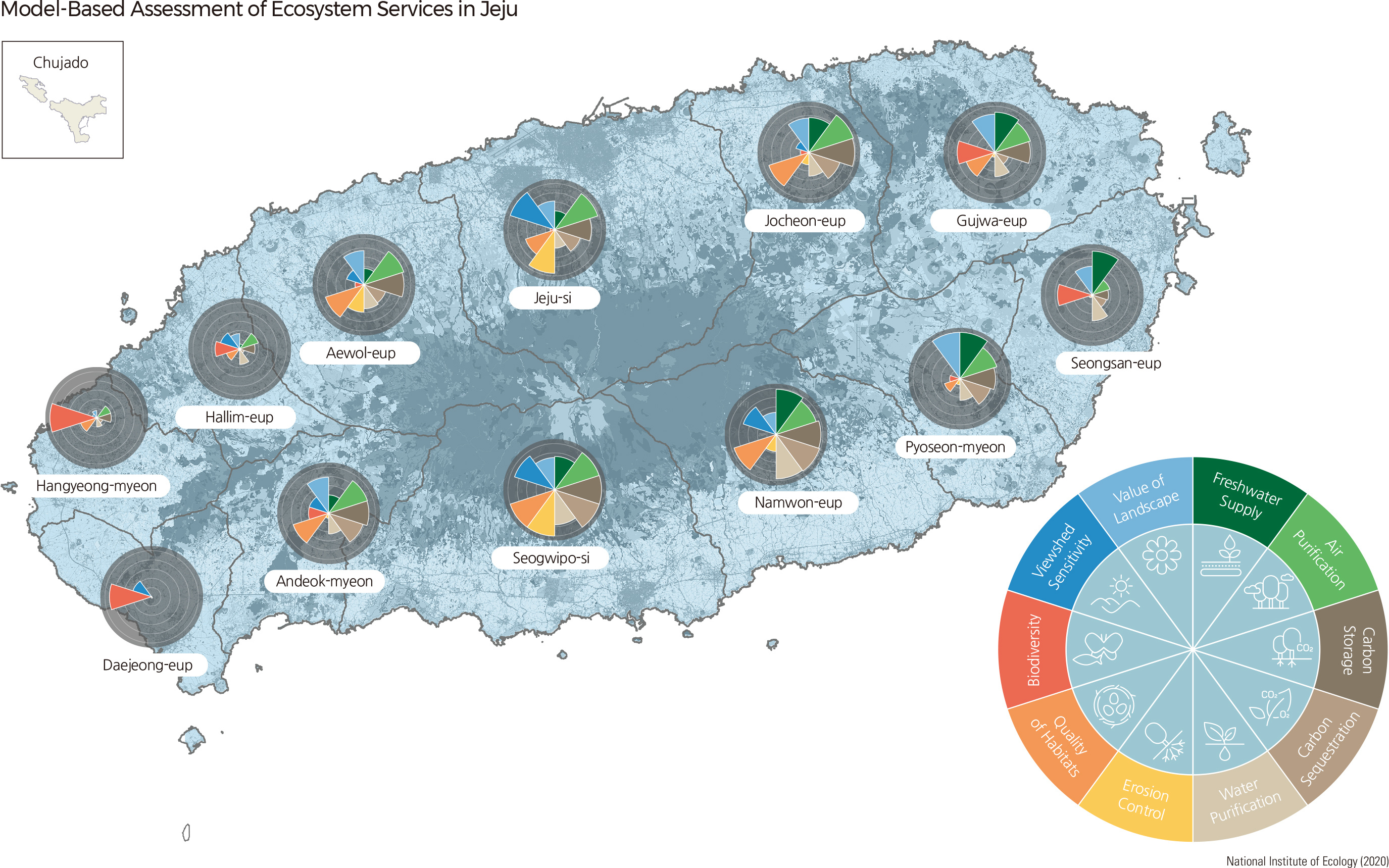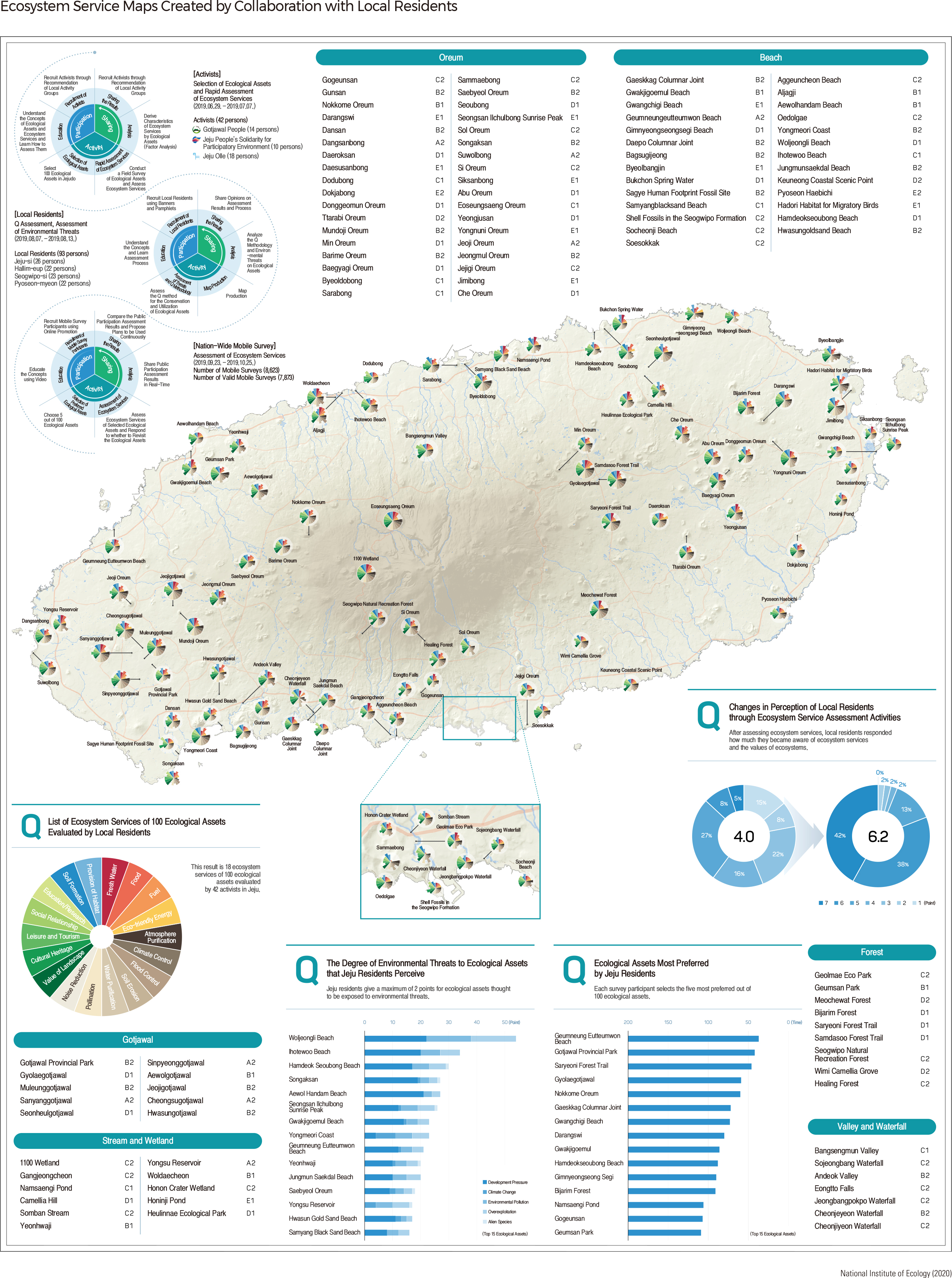Comprehensive Edition 2022
In 2018, the Ministry of Environment in Korea initiated a project to map ecosystem service assessments at the local government level. This project resulted in the production of ecosystem services maps of Jeju Island in 2019. This project serves as an inspirational model for how modern geospatial and mapping technologies can be used to support land management and stewardship efforts. It has also proven to be a successful endeavor due to its collaborative, community-based approach that involves local residents.
Ecosystem services are the benefits derived from ecosystems essential for human well-being. These services are states or processes that allow ecosystems and biological species to support human systems. According to the Millennium Ecosystem Assessment (MEA) in 2005, 60% of the world’s ecosystem services are currently degraded. This is a pressing issue that requires collaborative scientific research and collective action to address the sustainability of these services.
The MEA report brought attention to the relationship between humans and ecosystem change, as well as the quantifiable and comprehensive loss of ecosystem services. These services can be divided into four categories: provisioning services, which refer to benefits that humans receive directly from the ecosystem (e.g., food, water, and wood resources); regulating services, which are benefits generated by the regulation of ecosystem processes (e.g., air and water quality control, climate regulation, erosion control, pollination); cultural services, which include leisure and recreation, spiritual inspiration from nature, and education; and supporting services, which provide essential and basic services such as biodiversity and soil formation.
The mapping and monitoring of ecosystem services provide valuable management tools. And the dynamic and inclusive approach encourages community involvement, helping to spread awareness about the benefits of the natural world that are often unappreciated. By valuing and promoting the sustainable use of ecosystem services, projects such as this one demonstrated at Jeju Island can improve the quality of life for current and future generations. |


